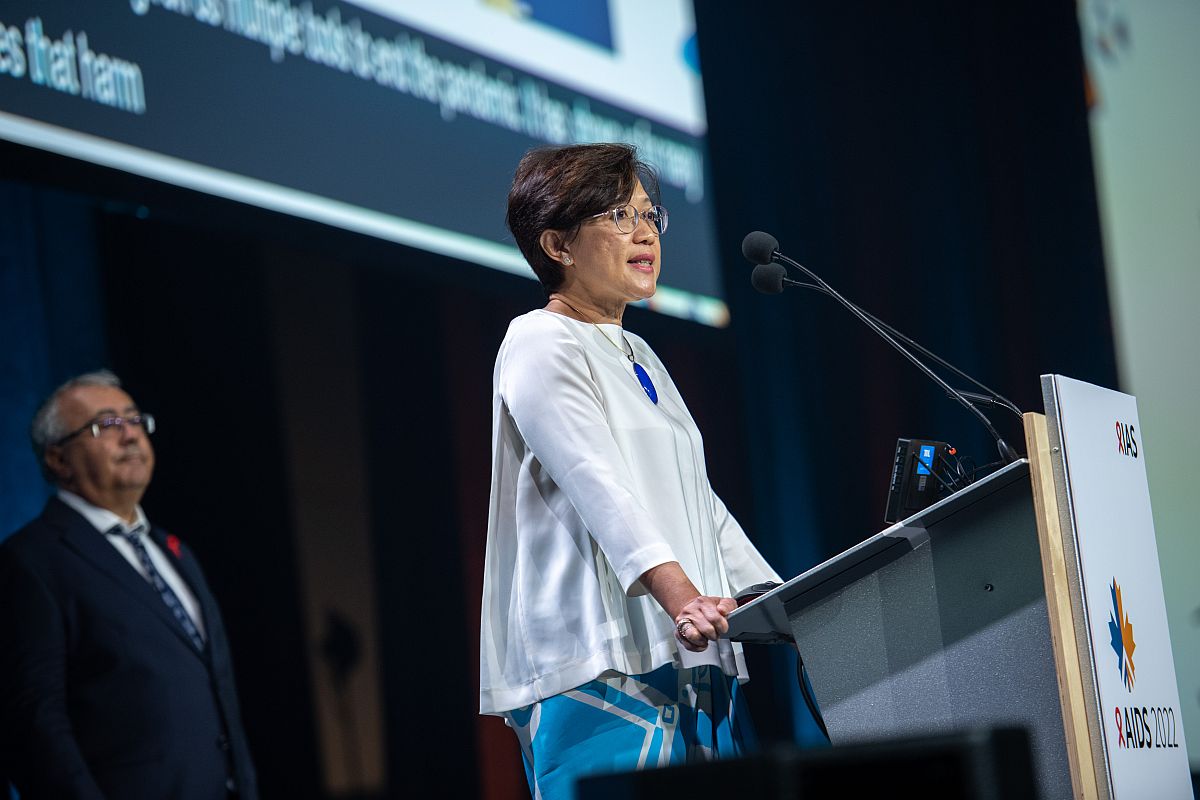KUALA LUMPUR, Feb 16 – Prof Dr Adeeba Kamarulzaman, a prominent figure in the medical fraternity, has criticised the conflicting interests plaguing the specialist training of junior doctors in Malaysia.
The infectious disease expert, currently serving as president and pro vice-chancellor of Monash University Malaysia, attributed the discord between the parallel pathway and local Master’s programmes to a lack of collaboration and clear governance structures.
“How we have come to this, this parallel pathway vs the Master’s programme, I do not understand. We all have the same vision to produce well-qualified doctors but somehow, along the way, it’s become this explosive subject of parallel vs Master of Medicine (MMED). I, for the life of me, I cannot… well, I can.
“It’s because we can’t seem to work together. It’s because we appear to answer to two bosses [sic]. It’s because of egos – I’m going to say it, right. It’s because we don’t have a clear governing structure. It’s because of vested interests – and all of those things that is making us fail our junior doctors,” Dr Adeeba said at the “Specialising in Malaysia” forum organised by the Malaysian Medical Association’s (MMA) Section Concerning House Officers Medical Officers and Specialists (Schomos) last February 3.
Dr Adeeba highlighted the need for a unified national curriculum to standardise training across institutions and pointed out the difference between training and examinations.
“The first thing I want to clarify and to hopefully put a stop to this division between the parallel pathway and the Master’s programme is for everyone to be absolutely clear about the difference between training and exams.
“In an ideal world, when I and others envisage this, why we wanted to produce this national curriculum is that everybody will be trained to the same structure, rotations, standards, supervision, with trainers being trained through a competency-based training programme – so there are work-based assessments as the trainees rotate through their specialties – and at the end, they can sit either the Master’s or the college exams or both.
“That is the basis of what I and others envisage as a national, unified, one training programme that combines the training sides and services that are available between the Ministry of Health (MOH), the universities, the defence ministries, etc., who want to train but have fulfilled the criteria for training as spelled out in the curriculum,” Dr Adeeba explained.
“Until and unless all of us decide to take off our hats of ‘We’re KKM’, ‘We’re university’ – worse, we’re not even universities together – ‘We’re UKM’, ‘We’re USM’, ‘We’re UM’ – until and unless that happens, next year, Dr Azizan (MMA president) you’re going to invite me again to this workshop to say how can we fix the specialist training programme.
“Let’s all decide at the end of today that we will unify under one training programme and then, whichever exam you want to sit, please do so, you can sit for both.”
Doctors’ specialist training in the country is currently largely provided by public universities through clinical Master’s programmes and the MOH via the parallel pathway.
The parallel pathway represents a form of on-the-job structured training provided by MOH for trainees who opt to sit for international examinations conducted by overseas Royal Colleges.
Get Rid of Hadiah Latihan Persekutuan
In a bold call for reform, Dr Adeeba also called for the removal of the Hadiah Latihan Persekutuan (HLP) government scholarship for specialisation in medicine, identifying it as a significant impediment to the training of junior doctors.
“We are constantly trying to put square pegs into round holes with JPA (Public Service Department) breathing down our necks saying, ‘No, ini tak boleh, itu tak boleh’ and I’m frustrated because when YB KJ (former health minister Khairy Jamaluddin) had yet another workshop to try and solve this problem, I was seated next to the PTD (district administrative officer) and I said, ‘One of the problems that’s stopping us is HLP. Can we get rid of the HLP and think of a new system to support our medical officers during their training? They may not even need an HLP’.
“When I trained in Australia, nobody gave me a biasiswa (scholarship). All you need is your salary to go through your training,” Dr Adeeba said.
The Malaysian Association for Thoracic and Cardiovascular Surgeons (MATCVS) last week questioned the Malaysian Medical Council’s (MMC) rejection of specialist registration applications by four pioneer parallel pathway graduates that prevents them from practising as independent cardiothoracic surgeons.
The College of Surgeons of Malaysia said MMC’s recent decision to reject specialist registration applications from Cardiothoracic Parallel Pathway graduates was alarming and may have grave implications for patients awaiting surgery.
Dr Adeeba believes that the specialist training issue is not for current Health Minister Dzulkefly Ahmad to tackle, but for the medical fraternity to resolve.
“Someone asked [on WhatsApp], why do we need Dr Dzul to come and solve this problem for us? Betul juga because we cannot get our act together,” she said.
“Do you think the Bar Council will allow Datuk Seri Azalina [Othman] (Minister in the Prime Minister’s Department for law and institutional reform) to sort out the legal training programme? No.
“For some reason, we have too many clever doctors that we can’t seem to work together. My plea is to unite and commit to one training programme, and candidates can sit for one or both exams.”








